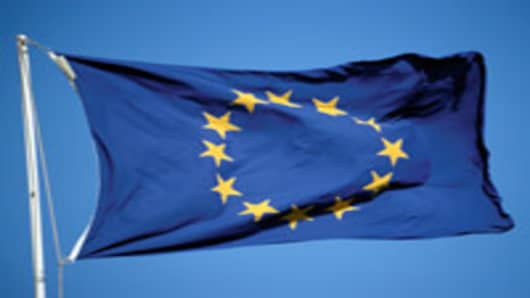Germany and France have agreed to work together in drafting initiatives to combat the eurozone crisis, a move set to allay fears that the governments of chancellor Angela Merkel and president François Hollande were set on a collision course over remedies.
Two months after a tense EU Summit in which Mr. Hollande championed growth as an alternative to Ms Merkel’s mantra of austerity, the countries’ finance ministers on Monday announced a working group that would seek to forge joint positions ahead of meetings of EU finance ministers and summits of European leaders.
After hosting his French counterpart Pierre Moscovici in Berlin, Wolfgang Schäuble, German finance minister, said they had agreed to form the group to work on European banking union, fiscal integration, and growth and competitiveness issues.
“We want to take joint decisions,” Mr. Schäuble said, stressing that the need was all the more pressing given slowing economic growth in Europe and around the world.
The two ministers met as German business sentiment in August fell for the fourth consecutive month. The Ifo Institute’s index reached its lowest level in more than two years as concern mounted in the corporate sector that the eurozone’s largest economy was following the rest of the bloc into a downturn.
Germany and France’s decision to seek closer co-operation is the clearest signal to date of thawing relations between Berlin and Paris – or the conservative Ms Merkel and the socialist Mr. Hollande – since French voters ousted Nicolas Sarkozy in May. Mr. Sarkozy and Ms Merkel had forged a close political entente in more than two years of crisis-fighting, with critics in France, including Mr. Hollande, accusing Mr. Sarkozy of bowing to a German Diktat of spending cuts that wiped out economic growth.
Since taking office, Mr. Hollande has been at pains to distance himself from such a close political relationship – a partnership dubbed “Merkozy”. Under pressure from his Socialists, he has worked to weaken perceptions of German dominance by building ties with Mario Monti, the Italian premier, and Spain’s Mariano Rajoy.
Mr. Hollande has not shied away from highlighting differences with Ms Merkel, causing her some political trouble at home. He has called for common eurozone bonds and giving the eurozone’s bailout fund backing from unlimited European Central Bank funding – positions that the German chancellor has blocked long and repeatedly.
But French officials say the Franco-German relationship remains the vital core of the eurozone and insist Mr. Hollande has forged a good working relationship with Ms Merkel – sentiments shared by Berlin officials. “It’s back to the tried and tested method” of co-operation, said one. “Ecofins and summits don’t work without it.”
“We want to bring together our points of view, which are not far apart, to make France and Germany the pillars...of a solution that is structural,” Mr. Moscovici said, promising to “intensify exchanges” ahead of the EU Summit mid-October.
The working group, led by Thomas Steffen, German deputy finance minister, and Ramon Fernandez, head of the treasury, will also prepare the implementation of agreements between the Eurozone and Greece and liaise with Spain about its bank recapitalisation. Mr. Schäuble and Mr. Moscovici will meet every two weeks.
In how far Ms Merkel and Mr. Hollande might raise the frequency of their meetings remained to be seen. Mr. Hollande’s early practice of avoiding pre-summit meetings with the chancellor had been widely welcomed by several smaller EU countries.
Many chafed under what they saw as a pre-cooked agenda set by Ms Merkel and Mr. Sarkozy. During the EU’s first post-Sarkozy summit in May, several heads of smaller countries, such as Demetris Christofias of Cyprus and Pedro Passos Coelho of Portugal, felt free to make uncharacteristically long debate interventions.
EU officials said the lack of an agreed Franco-German position had changed the tone of recent summits. But officials said this also had to do with the disappearance of Mr. Sarkozy, whose hectoring style on occasion stifled a freewheeling debate.


